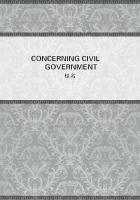Dear Sir,When I ride about in the winter, and see such prodigious flocks of various kinds of birds, I cannot help admiring at these congregations, and wishing that it was in my power to account for those appearances almost peculiar to the season. The two great motives which regulate the proceedings of the brute creation are love and hunger; the former incites animals to perpetuate their kind, the latter induces them to preserve individuals; whether either of these should seem to be the ruling passion in the matter of congregating is to be considered. As to love, that is out of the question at a time of the year when that soft passion is not indulged; besides, during the amorous season, such a jealousy prevails between the male birds that they can hardly bear to be together in the same hedge or field. Most of the singing and elation of spirits of that time seem to me to be the effect of rivalry and emulation: and it is to this spirit of jealousy that I chiefly attribute the equal dispersion of birds in the spring over the face of the country.
Now as to the business of food: as these animals are actuated by instinct to hunt for necessary food, they should not, one would suppose, crowd together in pursuit of sustenance at a time when it is most likely to fail: yet such associations do take place in hard weather chiefly, and thicken as the severity increases. As some kind of self-interest and self-defence is no doubt the motive for the proceeding, may it not arise from the helplessness of their state in such rigorous seasons; as men crowd together, when under great calamities, though they know not why? Perhaps approximation may dispel some degree of cold; and a crowd may make each individual appear safer from the ravages of birds of prey and other dangers.
If I admire when I see how much congenerous birds love to congregate, I am the more struck when I see incongruous ones in such strict amity. If we do not much wonder to see a flock of rooks usually attended by a train of dews, yet it is strange that the former should so frequently have a flight of starlings for their satellites. Is it because rooks have a more discerning scent than their attendants, and can lead them to spots more productive of food? Anatomists say that rooks, by reason, of two large nerves which run down between the eyes into the upper mandible, have a more delicate feeling in their beaks than other round-billed birds, and can grope for their meat when out of sight. Perhaps then their associates attend them on the motive of interest, as greyhounds wait on the motions of their finders; and as lions are said to do on the yelpings of jackals. Lapwings and starlings sometimes associate.
Letter XII
To The Honourable Daines BarringtonMarch 9, 1772.
Dear Sir,As a gentleman and myself were walking on the fourth of last November round the sea-banks at Newhaven, near the mouth of the Lewes river, in pursuit of natural knowledge, we were surprised to see three house-swallows gliding very swiftly by us. That morning was rather chilly, with the wind at north-west; but the tenor of the weather for some time before had been delicate, and the noons remarkably warm. From this incident, and from repeated accounts which I meet with, I am more and more induced to believe that many of the swallow kind do not depart from this island; but lay themselves up in holes and caverns; and do, insect-like and bat-like, come forth at mild times, and than retire again to their latebrae. Nor make I the least doubt but that, if I lived at Newhaven, Seaford, Brighthelmstone, or any of those towns near the chalk-cliffs of the Sussex coast, by proper observations, Ishould see swallows stirring at periods of the winter, when the noons were soft and inviting, and the sun warm and invigorating.
And I am the more of this opinion from what I have remarked during some of our late springs, that though some swallows did make their appearance about the usual time, viz., the thirteenth or fourteenth of April, yet meeting with an harsh reception, and blustering cold north-east winds, they immediately withdrew, absconding for several days, till the weather gave them better encouragement.
Letter XIII
To The Honourable Daines BarringtonApril 12, 1772.















